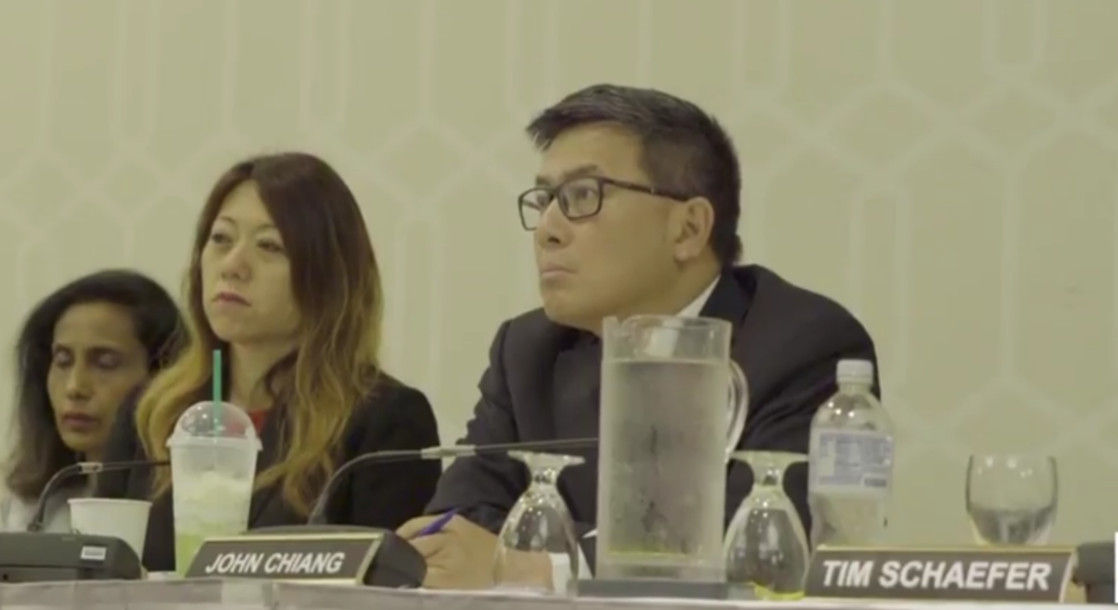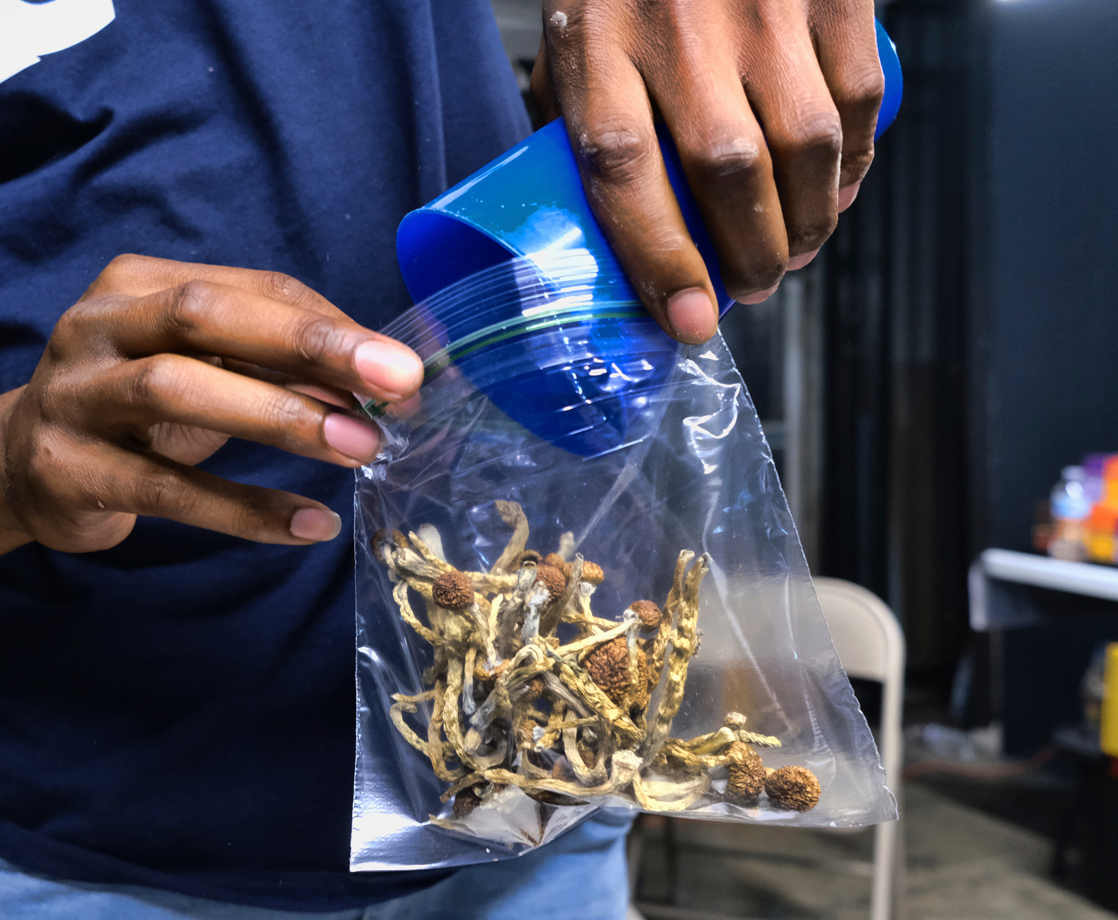California Treasurer John Chiang at a meeting of the Cannabis Banking Working Group in Los Angeles, August 2017; via MJ News.
On Tuesday, California State Treasurer (and 2018 gubernatorial candidate) John Chiang presented a report on cannabis banking. He began with an anecdote: Humboldt County, California's weed growing capital, has one of the highest rates of reported missing persons in the state. At a public hearing there, when asked if a gun had ever been pointed at them, most of audience raised their hands. Violence within the cannabis space is symptomatic of the industry's widespread inability to use banks.
"Wherever there's cash, there's risk in terms of some type of criminal activity to seize the cash. I know a lot of people who have been robbed," says Andrew DeAngelo, director of operations at Harborside Health Center in Oakland. "We retailers have a lot at risk, we have the greatest concentration of cash in the supply chain."
Because cannabis is a federally prohibited Schedule I substance, federally insured banks are reticent to do business with anyone whose money comes from weed. To navigate around this issue, Chiang has convened the Cannabis Banking Working Group, comprised of representatives from law enforcement, bans, taxing authorities, regulators, local government, and the cannabis industry.
Come 2018 when California's adult use market launches, the industry is poised to generate more than $7 billion in sales and $1 billion in tax revenue, annually. Chiang says it's an unfair public safety risk "to require a legal industry to haul duffle bags of cash to pay taxes, employees, and utilities bills." So during Tuesday's presentation, the working group released four main recommendations:
-
That state and local agencies contract with armored courier services to collect taxes and licensing fees paid in cash, count that cash, and transport it to the Federal Reserve or a commercial bank that's willing to take it from the hands of the state (the state or local taxing agencies' bank accounts would be credited)
-
The creation of an online portal to collect data from local governments and state regulatory agencies in order to help banks fulfill the federal obligation to "know their customers" before they accept deposits
-
A feasibility study looking into the creation of a state-owned bank for the cannabis industry; the study would investigate costs, benefits, risks, and legal or regulatory issues like capitalization, deposit insurance, and access to interbank transfer systems
-
The creation of a multi-state consortium, including representatives from cannabis-legal states, local governments, the cannabis industry, and the financial services industry, who would all educate the public and lobby federal politicians
"Just the fact that California's treasurer is looking for ways to help banking in the cannabis industry says a lot," says Daniel Yi, director of communications at MedMen. "It underscores how much the industry has evolved."
Only a few cannabis businesses like MedMen, where you can purchase weed with a credit card, have relationships with pioneering financial institutions. But even so, it's difficult for MedMen to work with brands that don't have their own bank accounts and can't cash checks, Yi explains.
Banks aren't technically barred from doing business with the cannabis industry. In fact, both the the Department of Justice’s Cole Memo and the Treasury Department's FinCEN guidance, respectively, told the feds to lay off state-compliant cannabis businesses, and advised banks on how to work with them.
"Because banks are incredibly risk averse and because the FinCEN guidance doesn't say it's a safe harbor, then [banks] advise their boards this way: We could do this, but technically the feds could come after us," explains Nicole Howell-Neubert, an attorney at Clark Neubert LLP and member of Chiang's working group.
If the recommendations become reality, likely only private financial institutions and credit unions will participate. "Whether this regulatory system works in California hinges on local governments stepping up, agreeing to actually regulate and licence these businesses," she adds. "We need state licenses for banks to be comfortable banking these businesses, but to have a state license you need a local permit. So while this is reported as a statewide issue, it is ultimately a local one."
DeAngelo, however, says he'd like to see the recommendations go further. Just as California is challenging the federal government over immigration and climate change, he says he wants the same thing to happen with cannabis.
Still, a lingering question asks how these recommendations will be funded. Both DeAngelo and Josh Drayton, communications and outreach director for the California Cannabis Industry Association, suggest that cannabis tax funds go toward a program for armored vehicles to collect taxes, or the execution of a feasibility study.
"The burden of cost could end up on the cannabis stakeholder," says Drayton. "It's getting very expensive heading into the regulated market, and we want to make sure all these folks can survive and come into compliance without further extreme financial burdens." That's not to mention the time expense, as well. "When you have to line up your employees every couple of weeks and pay them in cash, that takes a full day," he says. Or worse, try counting $500,000 in cash to pay your taxes.
"My real take away is that we need action at the federal level," says Drayton. "There are going to be band-aid solutions to get us through this time period, but until we see cannabis descheduled or rescheduled from Schedule I, permanent solutions seem to be far off."











